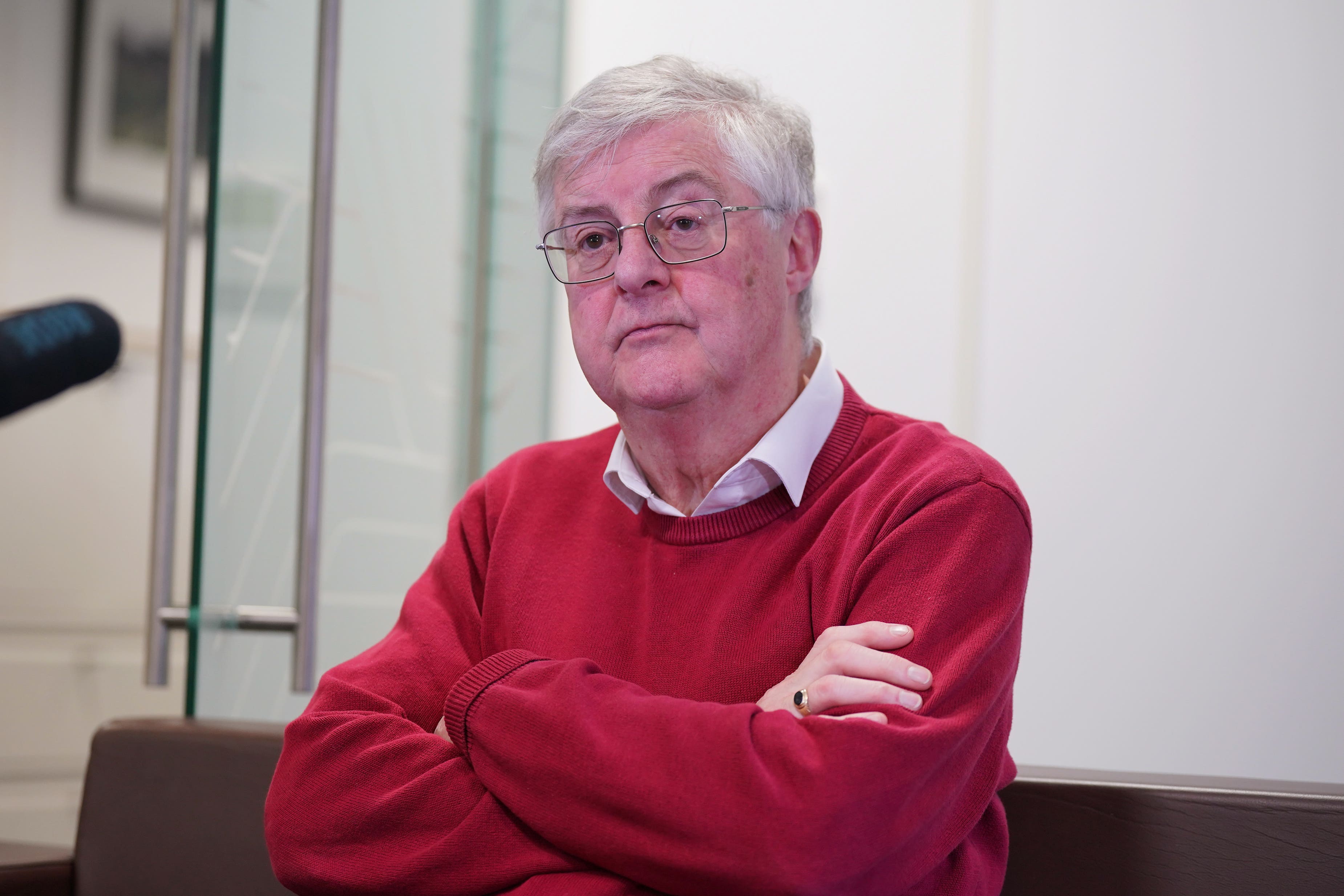Drakeford ‘optimistic’ about Labour’s election chances despite Welsh budget cuts
The Labour First Minister of Wales ruled out income tax rises because they would ‘add to the struggles’ of those on modest incomes.

Mark Drakeford is “optimistic” about the next general election for Labour – despite proposed budget cuts by the Labour-run Welsh Government.
The Labour First Minister of Wales, who recently said he intends to stand down in March, also said his Cabinet will not raise income tax to plug funding gaps because it would likely “add to the struggles” of those on modest incomes.
The Welsh Government set out its draft proposals for the 2024-25 budget on Tuesday.
The Cardiff Bay administration opted for cuts across different departments while shoring up spending on health and local government services.
Asked how cuts in the devolved government’s draft budget might impact Labour’s popularity in Wales, Mr Drakeford told the PA news agency: “We are, first of all, very optimistic about the general election and will continue as we always do to work as hard as we can to deliver as many Labour seats for a next Labour government as we can from Wales.
“I think people in Wales will be understanding of the context within which the budget is set.
“We have had to find £1.3 billion in our budget compared to the budget that was set for us by the Tories. That is the point I think we keep trying to explain to people.”
He added: “The struggle that we face is a direct result in the way in which the Tories have managed the economy and the impact of inflation and so on, so I think in Wales there is a broad understanding of where the responsibility for all this lies.
“Within that we have a responsibility to set a budget that lives within our means, and that is what the struggle of the autumn has been, to work collectively across the Cabinet to protect the things that matter to us the most.”
In Scotland, the SNP-run devolved government plans to create a new income tax band for high earners to deal with budgetary pressures.
The proposed advance tax rate of 45p will be applied on earnings from £75,000 a year to £125,140.
Mr Drakeford said his government looked “very carefully and seriously” at altering rates of income tax in Wales, which does not have the same power to create new bands as Scotland does.
But he added: “There are very few higher-rate taxpayers in Wales. If you are going to raise money through income tax in Wales, it is basic-rate taxpayers who have to bear the burden and these are people who are facing the cost-of-living crisis and who are already shouldering a burden of taxation that is the highest it has been for 75 years.
“In the end our Cabinet felt that was not a course of action we were prepared to support, because we would be adding to the struggles faced by people on very modest incomes doing absolutely essential jobs.”
I absolutely look to a Labour government, as will people who vote for that government, to do things for children who live in poverty in the United Kingdom today
Mr Drakeford also appeared to task Labour leader Sir Keir Starmer with tackling child poverty across the UK, as he said he will “look to a Labour government” to address it.
The First Minister recently told BBC Radio Wales it is a “disappointment” the era of devolved government has not led to more action on child poverty in Wales, and insisted that a Labour administration in Downing Street would help change this.
Sir Keir recently said he will not turn on the “spending taps” if his party comes to power, and Mr Drakeford agreed there would not be “anywhere simply to turn on the tap” in the early days of a future Starmer government.
But he added: “Labour’s plan will be set to the economy on that path to growth, and then to use the extra money that that will create to do the things that you look to a Labour Government to do.
“And I absolutely look to a Labour government, as will people who vote for that government, to do things for children who live in poverty in the United Kingdom today.”
Responding to Mr Drakeford’s comments on the draft Welsh Government budget, David TC Davies, the Secretary of State for Wales said: “The Labour Welsh Government receives £1.20 for every £1 spent in England. Furthermore, we are providing a record £18 billion a year to the Welsh Government through the block grant – the largest block grant since devolution began.
“Currently, the Labour Welsh Government is planning on wasting more than £100 million on creating more politicians and wasted £33 million on imposing its 20mph blanket policy.
“Labour ministers have the money, but it’s about priorities.”
Bookmark popover
Removed from bookmarks